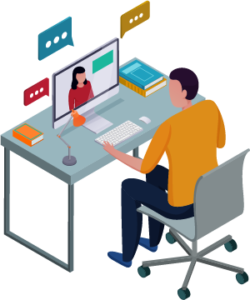how social media affects attention span
Social media has been shown to have both positive and negative effects on attention span. On the positive side, social media platforms can provide quick and easy access to a wealth of information, which can help improve attention span by stimulating curiosity and encouraging exploration.
However, social media can also have negative effects on attention span. One study found that heavy social media use was associated with lower attention spans and decreased cognitive control, which is the ability to regulate one’s attention and behavior. This may be due to the constant stream of notifications, updates, and messages that can distract users and disrupt their focus.
Additionally, the design of social media platforms themselves can also contribute to decreased attention spans. Many social media platforms use algorithms to tailor content to users’ interests, which can create a “filter bubble” effect that reinforces pre-existing beliefs and limits exposure to diverse perspectives. This can lead to a lack of engagement with new ideas and information, which can in turn limit attention span and cognitive flexibility.
Overall, while social media can have both positive and negative effects on attention span, it is important to use these platforms in moderation and be mindful of how they may be impacting your ability to focus and regulate your attention.
How can attention span be improved
Attention span can be improved through various strategies and techniques. Here are some effective ways to enhance attention span:
Practice mindfulness meditation: Mindfulness meditation involves focusing on the present moment and training the mind to remain focused. This practice can help improve attention span and reduce distractions.
Get enough sleep: Sleep deprivation can have a negative impact on attention span. Getting enough sleep can improve cognitive function and help maintain focus.
Exercise regularly: Regular exercise has been shown to enhance attention span and cognitive function. Exercise can increase blood flow to the brain and help boost energy levels, which can improve focus and concentration.
Take breaks: Taking short breaks can help improve attention span by allowing the brain to rest and recharge. Taking a break every 20-30 minutes can help maintain focus and reduce mental fatigue.
Reduce distractions: Minimizing distractions such as turning off notifications and blocking distracting websites can help improve attention span. Creating a quiet and organized work environment can also help reduce distractions.
Use tools and techniques: Using tools such as timers, to-do lists, and visual aids can help improve attention span and increase productivity. Breaking down tasks into smaller, manageable chunks can also help maintain focus and reduce mental fatigue.
Practice active listening: Active listening involves paying attention to what others are saying and processing information. This practice can help improve attention span and enhance communication skills.
By incorporating these strategies into your daily routine, you can improve your attention span and enhance cognitive function, which can lead to greater productivity and overall well-being.
how attention span is decreased
There are several factors that can contribute to a decrease in attention span, including:
Digital distractions: The constant stream of notifications, emails, and messages from smartphones, social media, and other digital devices can lead to a decrease in attention span.
Lack of sleep: Sleep deprivation can lead to a decrease in cognitive function, including attention span.
Stress and anxiety: High levels of stress and anxiety can make it difficult to concentrate and maintain focus, leading to a decrease in attention span.
Poor nutrition: A diet high in sugar and processed foods can lead to a decrease in cognitive function, including attention span.
Sedentary lifestyle: Lack of physical activity and a sedentary lifestyle can lead to decreased blood flow to the brain, which can result in a decrease in cognitive function and attention span.
Multitasking: Trying to focus on multiple tasks at once can lead to a decrease in attention span and reduced productivity.
Boredom: Engaging in repetitive or unstimulating activities can lead to a decrease in attention span and mental fatigue.
By identifying and addressing these factors, individuals can take steps to improve their attention span and enhance cognitive function. This can lead to greater productivity, improved learning and memory, and a better overall quality of life.
what is attention span
Attention span refers to the length of time that an individual can remain focused on a particular task or activity before becoming distracted or shifting their focus to something else. It is a measure of the ability to maintain sustained attention and concentration on a task, and is an important aspect of cognitive function.
Attention span can vary depending on a variety of factors, including age, cognitive ability, and the nature of the task at hand. It is generally thought that attention span tends to decrease as individuals age, although there is considerable individual variation in this regard.
Attention span is important for a wide range of everyday activities, including work, learning, and social interactions. Individuals with shorter attention spans may struggle to complete tasks or to engage in activities that require sustained focus, while those with longer attention spans may be better able to maintain focus and perform more effectively in these situations.
Improving attention span can be beneficial for a wide range of activities, and can be achieved through various techniques and strategies, such as mindfulness meditation, regular exercise, and minimizing distractions.
